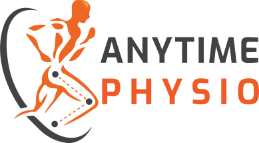
Millions of people all over the world experience chronic pain in their jaw. The temporomandibular joints (TMJs) on each side of your jaw are sliding hinges among the most frequently used joints in the body. This is why they are prone to many issues that can cause pain.
Temporomandibular joint disorder (TMD) is a condition wherein pain limits a person’s jaw. It affects millions of people worldwide, most commonly among women aged 20 to 40 years old.
TMD can be caused by different factors, many of them working together to exacerbate the damage inflicted on TMJs. Common causes include previous jaw injuries, arthritis, stress injury, teeth grinding, dental problems, jaw alignment, and even genetics. TMD can also compound on itself—people with jaw pain are more likely to grind their teeth in an attempt to relieve it, causing even more damage.
Temporomandibular joint disorder (TMD) Symptoms
Common symptoms include:
Pain or tenderness in the jaw, upper neck, ear, or face
Difficulty chewing
Limited movement
Locked joint
Teeth grinding
Clicking sounds when move the jaw
Headaches
Unfortunately, there are no medical tests that can diagnose TMD. If you are experiencing one or more of these symptoms, you can seek out a local physiotherapist to manage them through treatment..
Physiotherapy Treatment For TMD
Although TMD is a chronic condition, it’s not progressive ailment. Physiotherapy can help relieve jaw pain and treat any underlying disorders around the TMJ, no matter how severe.
When you go in for a physiotherapy appointment, your TMJ will be assessed thoroughly through an evaluation of muscle tension, range of motion, and movement patterns. These tests will determine whether your TMD is an opening or closing problem.
If you’re suffering from opening TMD, it may be caused by muscle disorder, arthritis, disc displacement, hypermobility, or a cervical spine problem. On the other hand, a confirmation of closing TMD means it may be caused by occlusion or a locked TMJ.
After confirming the diagnosis, your physiotherapist will design the best treatment program for your specific TMJ problems. Most patients will see improvement after 3 to 6 weeks of regular appointments.
Some treatments may include:
Muscle relaxation techniques
Muscle strengthening exercises
Mobilisation techniques
Massage
Posture correction
Dry needling
For patients with sleep bruxism (grinding teeth while asleep), your physiotherapist will coordinate with your dentist for effective treatment. Occlusal splints will hold your jaw apart as you sleep, which prevents TMJ compression. These splints can reduce long-term degeneration of the teeth and jaw.
Besides physical treatment, simple lifestyle changes can also help you manage your condition. Stress management, better sleeping positions, posture education, diet changes, and a simple home exercise program can significantly reduce TMJ symptoms.
No two people will be given the same treatment program, even if their TMJ issues are similar. It’s best to book an appointment with an experienced physiotherapist so your specific disorder can be diagnosed and you can get a treatment program that best suits you.
Conclusion
Your TMJ is the most used joint in your body, so it’s very susceptible to issues and damage due to stress. If you’re experiencing chronic pain in that area, an experienced physiotherapist can diagnose your specific problems and assign a treatment program that will relieve pain and address all its underlying issues.
It’s important to approach experienced, highly qualified physiotherapists in your area to ensure that you’re getting the treatment you need. Anytime Physio is a Brisbane-based physiotherapy clinic that offers cost-effective muscle therapy and treatment techniques tailored for every patient. Book your physiotherapy appointment with us today!

